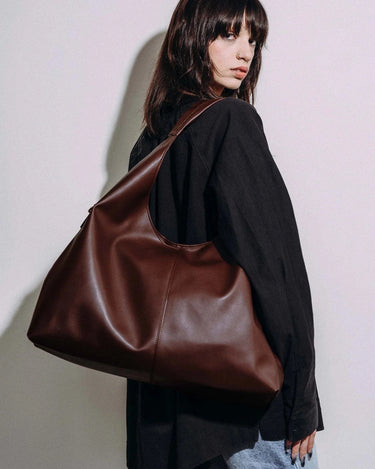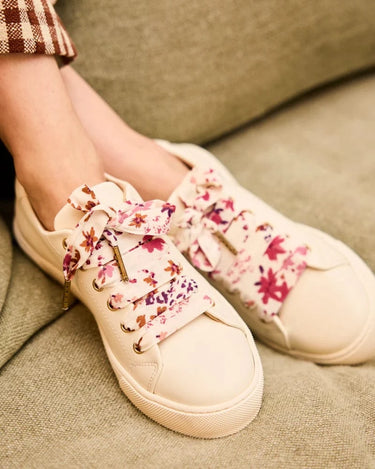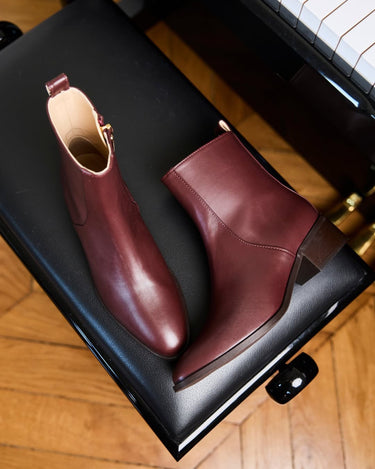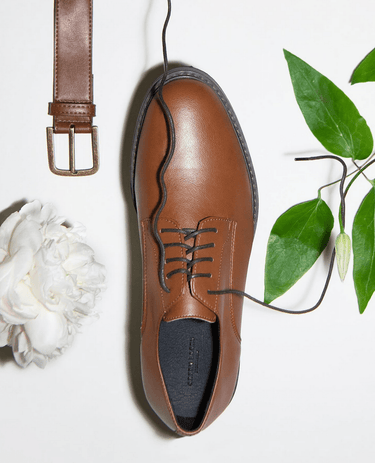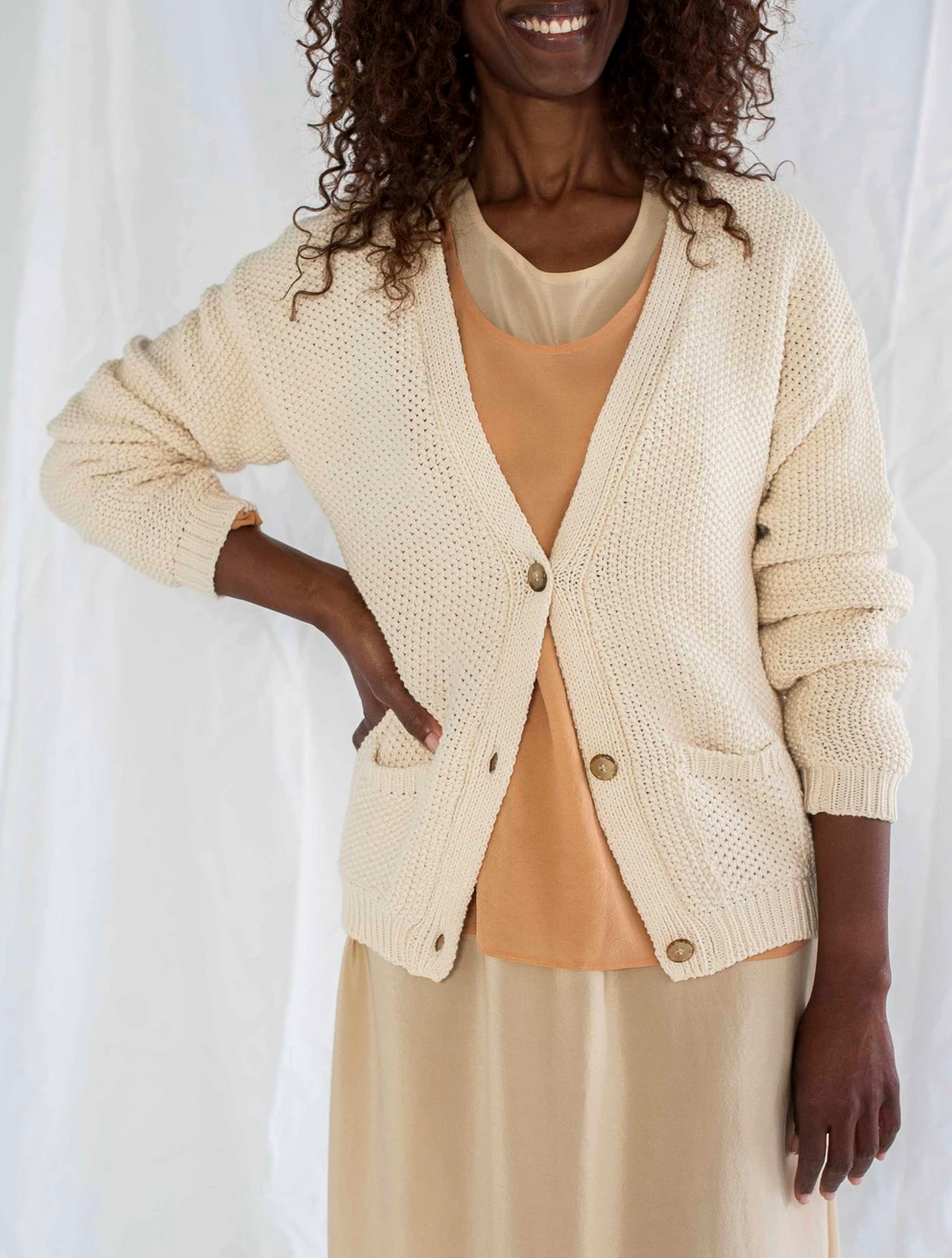The Ultimate Guide to the Most Sustainable Fabrics in Fashion
We're living in the age of sustainable fashion – ethics and sustainability are becoming much-discussed topics for fashion brands and consumers alike. And with good reason: fashion has been shown to have a detrimental effect on the planet many times, be it through pollution, waste, slavery, or animal abuse. The more we speak about sustainability, the more progress can take place. Nevertheless, few people understand a key component of sustainability: material choice.
By Sascha Camilli: writer, speaker, activist and vegan fashion expert.
The importance of sustainable fashion
The materials we choose matter because different materials and their production chain affect the planet differently, and bringing in more understanding of how materials are produced and what consequences material choice has is crucial to advancing sustainability.
Choosing not to use animal-derived materials is a major step towards a more ethical fashion industry – aside from the ethical aspect of avoiding the exploitation and killing of billions of animals, vegan fashion can also be less wasteful and less resource-intensive. Raising animals for any human purpose – including mass-production of clothing – puts a major strain on the planet. For example, several reports from within the industry itself have found leather to be the among the most (and sometimes the most) polluting materials in the fashion industry.
The materials below may not be perfect (nothing we produce is completely free from any impact) but they are great choices when it comes to moving away from harmful practices and into a new, more gentle era of fashion.
Organic cotton
An alternative to wool and other animal fibres that often feature in vegan knitwear, organic cotton is much kinder to the environment than conventional cotton: it uses much fewer pesticides, and is less water-intensive, as farmers can rely on rain water for its growth. Organic cotton is a very versatile material – from day dresses to warm knitwear, it's a great basic fabric to introduce to your wardrobe.
Linen
Another natural fabric, linen is one of the most eco-friendly materials used in fashion. The flax plant, which linen comes from, doesn't require energy or water, and produces very little waste. The fabric is extremely durable – it can last for 20 years! Lightweight and breathable, linen is also biodegradable and recyclable. It's the perfect addition to a sleek, minimalist summer wardrobe, and is used by Neu Nomads for their lightweight floaty jackets, trousers and tunics.
ECONYL
Here, we leave the world of natural fibres behind and enter more high-tech territory. Used in swimwear and activewear, ECONYL is an innovative way to harness waste and turn it into fashion, while combatting an urgent problem: plastic pollution. This material is made by regenerating industrial plastic waste and fishing nets from oceans into a yarn that's suitable for sportswear or swimwear. In a world where textile waste is a major environmental issue, creative regenerative solutions are exactly what we need – and ECONYL is a brilliant transformation of waste materials into beautiful, eco-efficient products.
Bamboo silk
The issues around traditionally produced silk aren't known to many, but the truth is that silk, like all other animal-derived materials, is made by abusing and killing animals. Silkworms are commonly boiled alive inside their cocoons to extract the yarn that silk will be made from. Silk also ranked second (after leather) on the Pulse of Fashion Industry report's 2017 list of the materials with the highest cradle-to-gate environmental impact. Luckily, today silk is easy to replace – one alternative is bamboo silk, asused by several luxury sustainable nightwear brands. Soft, flowing and with a naturally silky feel, bamboo fabric can be eco-friendly: it requires no fertilisers and regenerates itself, with no need for replanting. Plus, no killing of worms required.
Tencel
Also known as Lyocell, Tencel is made from wood-pulp cellulose and made with a closed-loop technology, meaning that the water and chemicals used in the process are reused to minimise waste. Tencel – a great vegan replacement for everything from silk to wool – requires less water and uses less energy than many conventional textiles including cotton. It's a true fashion hero, suitable for everyday must-haves such as dresses or jumpsuits, but can also be suitable for cruelty-free outerwear. It's the signature material used by both blisko and Neu Nomads.
Cupro
A lightweight, breathable fabric which is frequently used in dresses, cupro is made from cotton linter: a waste part of the cotton plant. Just like Tencel, the production process of Cupro uses the closed-loop technology to minimise waste. It is also entirely biodegradable. Cupro drapes well and is a great eco-friendly alternative to silk for summer wardrobe essentials.
LENZING Ecovero
Material company LENZING has developed Ecovero, a vegan silk made with natural, renewable fibres derived from wood from sustainable forests. This viscose material uses 50% less water and generates half the emissions of traditional viscose. It has a soft, silk-like texture and is easy to wash. Brands using it include Baukjen.

Deadstock fabrics
The most eco-friendly way to shop is to use resources we already have – and the use of deadstock fabric does just that. Garment factories and mills routinely end up with waste materials, also known as deadstock. Some ethically minded brands (step forward Taiyo and Bona Fide) have found a way to use that waste fabric to create new designs. This keeps the use of new resources to a minimum and gives leftover fabrics new life.
Forward-thinking fashion brands are experimenting with natural and human-made resources to create vegan clothing that is also kind to the environment. As we pave the way for an industry that has shunned plastic pollution and cruelly produced animal-derived materials, these sustainable fibres are part of the way forward.
By Sascha Camilli
About Sascha
Sascha Camilli is a vegan fashion writer, speaker and activist. Her book Vegan Style is out now on Murdoch Books. For more about Sascha, you can read our interview with her. You can also follow her on Instagram, Twitter and LinkedIn.
If you love the idea of vegan alternatives, why not take a look at our vegan bags, vegan shoes, vegan boots, vegan trainers and vegan accessories.
For more great content like this in your inbox, sign up to our newsletter, and save 10% off your next purchase, plus great savings throughout the year.
Cover image by Neu Nomads
Related Articles

